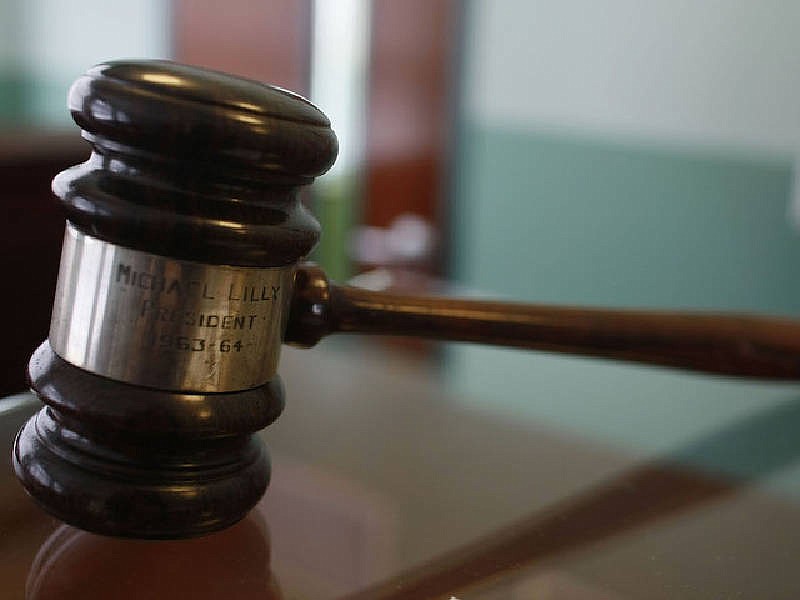NASHVILLE - The Universal Life Church Monastery is suing Tennessee and four county clerks in an effort to stop a new state law that, beginning on July 1, bars any minister who receives an online ordination from solemnizing marriage ceremonies.
Filed in the U.S. District Court for the Middle District of Tennessee on Friday, the suit asserts that certain provisions of the new law are in direct violation of the First and Fourteenth amendments to the U.S. Constitution in addition to Article 1, Section 3 of the Tennessee Constitution.
It was followed up Tuesday with attorneys for the group filing a proposed restraining order to block the law from taking effect.
"ULC Monastery is a non-denominational religious organization that champions religious freedom, social justice, and spiritual expression of all kinds," the group's attorneys argue in the complaint for declaratory and injunctive relief. "To further its mission, ULC Monastery ordains those who feel called to be a minister of the Church, and many who receive ordination choose to minister by officiating weddings."
It also charges that the law, Public Chapter 415, "authorizes religious leaders to solemnize marriages in Tennessee, but only for favored religions that appoint their ministers in a manner the State deems acceptable. The statute discriminates against ULC Monastery ministers by design and restricts their protected speech without justification."
As a result, the complaint says, the new law "unconstitutionally grants a preference to certain religions, burdens ULC Monastery's and its members' free exercise of religion, and violates the Church's and its ministers' freedom of speech."
During debate on the bill, sponsors largely focused on language that added state representatives and senators as well as elected municipal officeholders to the list of those able to officiate marriages. But other proponents acknowledged it was also intended to stop Tennesseans who received their ordinations online from solemnizing marriages.
In an interview Tuesday with the Times Free Press, Brother G. Martin Freeman, presiding chaplain of the ULC Monastery, said: "I don't think [the new law] is going to happen in Tennessee. As a matter of fact, I'd put money on it."
In addition to ULC Monastery, three Tennessee-based ministers ordained by the organization - Erin Patterson, Gabriel Biser and James Welch - listed as plaintiffs, according to court documents.
The lawsuit names Tennessee Attorney General Herbert Slatery and four county clerks, including Hamilton County Clerk Bill Knowles, whose offices issue marriage licenses, in their official capacities.
Other clerks included in the lawsuit are Lisa Duke Crowell of Rutherford County, Wayne Nabors of Putnam County and Elaine Anderson of Williamson County.
Slatery's spokeswoman Samantha Fisher said the attorney general's office was served with the lawsuit Monday.
"We are working through it and intend to fulfill our duty to defend state law," Fisher said.
Slatery just last week issued a legal opinion in response to questions posed by a Republican lawmaker about the new law's impact regarding online ordination.
"Does Public Chapter 415 change whether spiritual leaders who receive their ordinations online may solemnize marriages under § 36-3-301?" Sen. Art Swann of Maryville asked Slatery.
In response, Slatery said, "Yes. After the effective date of Public Chapter 415, spiritual leaders who receive their ordinations online will no longer be among those individuals who are authorized under § 36-3-301 to solemnize marriages in Tennessee."
The opinion notes that the new law "changes the current framework in one respect. It amends § 36-3- 301(a)(2) so that after June 30, 2019, '[p]ersons receiving online ordinations' are no longer authorized to solemnize marriages in Tennessee, even if they received their ordination pursuant to a religious custom that constitutes a 'considered, deliberative, and responsible act.'"
Slatery also noted that in a 2015 legal opinion "this office reaffirmed that online ordination that requires no more than a 'click of the mouse' would not satisfy the requirement of ordination pursuant to a considered, deliberate, and responsible act."
The Universal Life Church Monastery is a non-denominational religious organization which advocates for religious freedom and offers free legal ordination to anyone who wishes to join.
The lawsuit says ULC Monastery "expects its ministers to conduct themselves according to the Church's two core tenets, but ULC Monastery rejects the idea that a church's members should be made to obey the commands of any central leadership structure and embraces the equality of all individuals."
The lawsuit was spurred by the new state law, sponsored by Rep. Ron Travis, R-Dayton, and Sen. Ken Yager, R-Kingston.
Travis said at the time that his purpose in bringing the legislation was to allow current and former state senators and representatives and a number of local officials to perform marriage ceremonies.
But it ran into trouble on the House floor initially with a number of lawmakers balking, primarily over the issue of their performing marriage ceremonies. One social conservative fretted over whether she could be sued if she refused to perform a ceremony at someone's request.
House Judiciary Committee Chairman Michael Curcio, R-Dickson, jumped in to point out that the measure had another purpose: it was aimed at barring people getting ordinations online and performing marriage ceremonies.
During debate, Curcio called it a "very critical legal problem."
"We have right now in Tennessee a situation where people are going online and getting an online ordination in order to marry friends and family members," Curcio told colleagues. "Right now we don't know under the eyes of the law whether those are legal marriages. So we desperately need clarification."
Under the new law, that "clarification" bans people receiving online ordinations from solemnizing a marriage. The bill also declares that any marriage entered into prior to July 1 would not be affected.
The bill retained current law that says a minister, preacher, pastor, priest, rabbi or other spiritual leader must be ordained or "otherwise designated in conformity with the customs of a church, temple or other religious group or organization.
Contact Andy Sher at asher@timesfreepress.com or 615-255-0550. Follow on Twitter @AndySher1.
